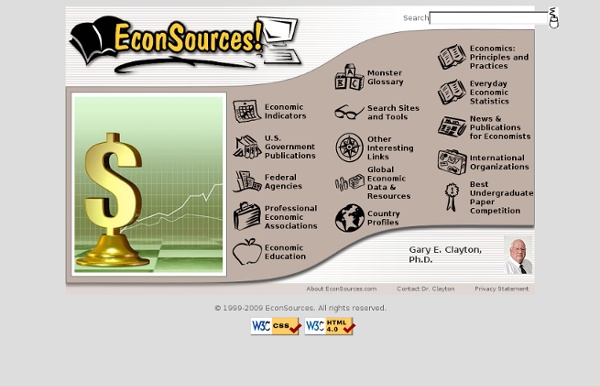



Economics Revision Notes for AS, A2 & IB Economics AS, A2 & IB Economics Revision Notes This is a new, comprehensive collection of free revision notes to support core topics on your AS, A2 or International Baccaleaurate Economics courses. Click on the relevant tab to find suitable notes. Click here for a comprehensive range of economics revision presentations Digital Magazines Business Cafe econoMAX First Past the Post Teacher Services Subject Newsletters Inset Courses Student Workshops Blogs Economics Business Studies Politics History IB Diploma Sociology Law Religious Studies Revision Presentations Business Strategy Accounting & Finance Economics External Environment Marketing Politics Revision Notes Accounting & Finance Economics (AS/A2) Economics (GCSE) External Environment Business Studies (GCSE) Marketing People / Organisations Politics Production & Ops Religious Studies (AS/A2) Sociology (GCSE) Strategy Quizzes The Biz Quiz (Business) Accounting & Finance Economics (AS/A2) Marketing People & Organisations Politics Production & Operations Other Resources Applying to University
Wealth of Nations Introduction Chapter 1. Of the Division of Stock Chapter 2. Of Money considered as a particular branch of the general Society, or of the Expense of maintaining the National Capital Chapter 3. Chapter 4. Chapter 5. Introduction Chapter 1. Chapter 2. Chapter 3. Part 1. PART 2. CHAPTER 4. CHAPTER 5. CHAPTER VI Of Treaties of Commerce CHAPTER VII Of Colonies PART 1 Of the Motives for establishing new Colonies PART 2 Causes of Prosperity of New Colonies PART 3 Of the Advantages which Europe has derived from the Discovery of America, and from that of a Passage to the East Indies by the Cape of Good Hope CHAPTER VIII Conclusion of the Mercantile System CHAPTER IX Of the Agricultural Systems, or of those Systems of Political Economy which represent the Produce of Land as either the sole or the principal Source of the Revenue and Wealth every Country
How to start a dividend portfolio with $5,000 « Intelligent Speculator Anytime we talk about stock picks or building a portfolio, one of the most asked questions on this blog is how to start building the portfolio itself. It’s easier said than done of course and lends easily to procrastination. Of course, this is what makes the biggest difference in the end. Making the right picks and trades is important but getting started, to actually build the portfolio is the real critical part. That being said, we decided to write a general guide. We used the example of starting with $5000 but this can be applied to any amount really. #1- Open a brokerage account The first step is perhaps the more “complicated” one as you must of course open a brokerage account. #2- Buy 2 reliable growth dividend stocks Because commission end up being paid, you do not want to buy too many different stocks all at once. Every month at least, we give out some dividend picks in our free newsletter so you could get some ideas there. This is really one of the main keys. Conclusion
Bloom's Taxonomy Note: This site is moving to KnowledgeJump.com. Please reset your bookmark. Bloom's Taxonomy was created in 1956 under the leadership of educational psychologist Dr Benjamin Bloom in order to promote higher forms of thinking in education, such as analyzing and evaluating concepts, processes, procedures, and principles, rather than just remembering facts (rote learning). It is most often used when designing educational, training, and learning processes. The Three Domains of Learning The committee identified three domains of educational activities or learning (Bloom, et al. 1956): Cognitive: mental skills (knowledge) Affective: growth in feelings or emotional areas (attitude or self) Psychomotor: manual or physical skills (skills) Since the work was produced by higher education, the words tend to be a little bigger than we normally use. While the committee produced an elaborate compilation for the cognitive and affective domains, they omitted the psychomotor domain. Cognitive Domain Review
Classical Economics vs. The Exploitation Theory - George Reisman For more than a century, one of the most popular economic doctrines in the world has been the exploitation theory. According to this theory, capitalism is a system of virtual slavery, serving the narrow interests of a comparative handful of businessmen and capitalists, who, driven by insatiable greed and power lust, exist as parasites upon the labor of the masses. This view of capitalism has not been the least bit shaken by the steady rise in the average standard of living that has taken place in the capitalist countries since the beginning of the Industrial Revolution. By the same token, they tremble at the thought of unions not existing, of a society without minimum wage laws, maximum hours legislation, and child labor laws—at the thought of a society in which no legal obstacles stood in the way of employers pursuing their self-interest. The Exploitation Theory and the Overthrow of Classical Economics The Conceptual Framework of the Exploitation Theory Smith and Marx are wrong.
Gold & Inflation As the story goes, someone asked an economist how his wife was doing, and the economist answered "compared to what?" Joking aside, this is one of the most important questions one can ask when dealing with many economic problems. In recent times, with gold reaching all-time highs, we have seen people question the valuation of assets in dollars. Basically, the yardstick used to measure your assets — your house, car, or stock portfolio — is a steadily shrinking one. This makes you wonder whether your savings are really growing in value. In other words, if the value of your savings has doubled, but the price of milk and everything else has roughly doubled, you are not getting ahead. The way the dollar yardstick is being shrunk is by increasing the stock of money, which means that there are more dollars in circulation. Why would governments want to decrease the value of our money? First, creating more dollars is an easy way to pay for government expenditures. Click to expand image.
Banka.hr Moneychimp: Stocks Lider - Početna